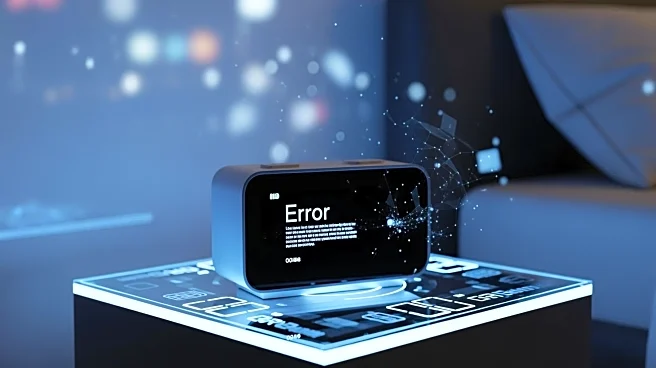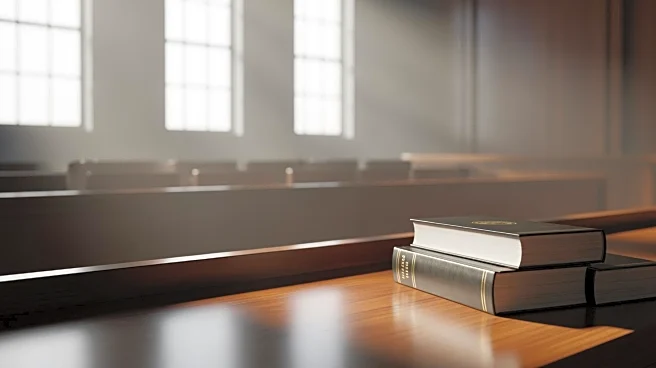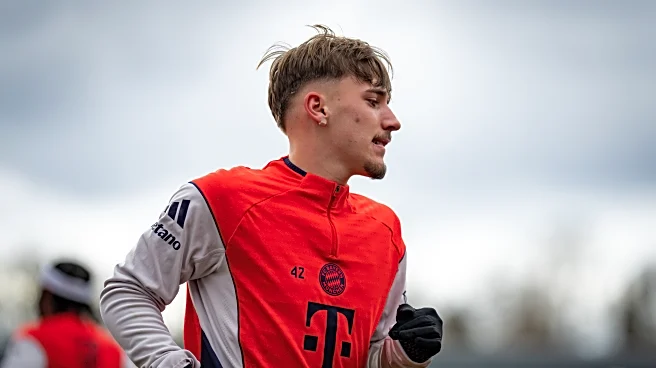What's Happening?
The integration of technology into sleep routines has become increasingly prevalent, with products like Eight Sleep, a high-tech mattress cover, leading the charge. This device, which monitors heart rate
and body temperature, aims to optimize sleep by adjusting its temperature settings throughout the night. However, a recent outage at an Amazon Web Services (AWS) data center disrupted Eight Sleep's functionality, leaving users unable to adjust their beds. The incident underscores the growing reliance on technology for sleep enhancement, as the sleep tech industry is projected to grow significantly, from $29.3 billion to $135 billion by 2034. Despite the disruption, Eight Sleep has introduced a backup mode using Bluetooth to mitigate future issues.
Why It's Important?
The incident highlights the potential vulnerabilities in the increasing reliance on technology for basic human functions like sleep. As more consumers invest in sleep technology, the risk of technological failures impacting daily life grows. This dependence raises questions about the balance between technological convenience and the potential for disruptions. The sleep tech industry's rapid growth reflects a broader societal trend towards optimizing personal health and wellness through technology. However, the reliance on cloud-based systems for essential functions like sleep could lead to significant inconveniences, as demonstrated by the AWS outage.
What's Next?
In response to the outage, Eight Sleep is working to diversify its cloud setup to prevent similar issues in the future. The company has also launched a Bluetooth-based backup mode to ensure functionality during cloud disruptions. As the sleep tech industry continues to expand, other companies may follow suit, implementing similar measures to safeguard against technological failures. Consumers may also become more discerning, seeking products that offer offline capabilities to avoid reliance on cloud services. The incident may prompt a broader discussion on the role of technology in personal health and the need for reliable, fail-safe systems.
Beyond the Headlines
The reliance on technology for sleep optimization raises ethical and cultural questions about the extent to which technology should permeate personal and private aspects of life. As sleep becomes increasingly technologized, there is a risk of losing touch with natural sleep patterns and rhythms. The incident also highlights the potential for technology to exacerbate existing inequalities, as access to advanced sleep technology may be limited to those who can afford it. This could widen the gap between different socioeconomic groups in terms of health and wellness outcomes.









